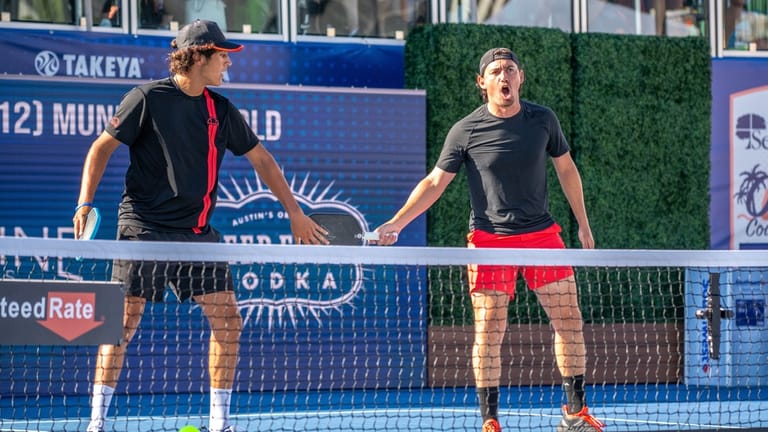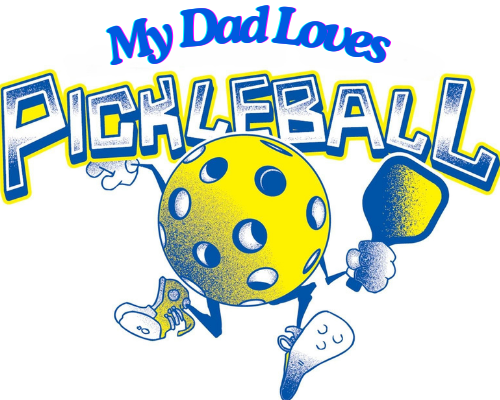
The psychology of pickleball: Mental strategies for success
Key Takeaways
- Understanding mental strategies is vital to enhance performance.
- Concentration and focus directly affect the quality of your game.
- Visualization can boost confidence and improve decision making.
- Mindfulness and relaxation techniques can reduce anxiety.
- Set practical goals to track your progress and stay motivated.
As the game of pickleball continues to gain popularity, it's important to understand that being skilled on the court extends beyond physical prowess. Mental preparation plays a crucial role in enhancing concentration and performance during games. In this article, we'll explore various mental strategies that can help players achieve success.
The importance of mental preparation
Mental preparation is often an overlooked aspect of training. Just as athletes practice their swings and footwork, mental exercises can sharpen focus, refine decision-making, and sustain performance during intense matches. Here are some key reasons why mental preparation is necessary:
- Enhances focus and concentration
- Builds confidence and self-belief
- Helps manage stress and anxiety
- Promotes a positive mindset
Techniques for mental preparation
Incorporating mental techniques into your training routine can be very effective. Below are some strategies that can aid in your mental preparation:
1. Visualization
Visualization involves creating mental images of successful performance. By visualizing scenarios you may encounter in a match, you can improve your confidence and readiness. Practice this technique:
- Find a quiet place to sit comfortably.
- Close your eyes and relax your body.
- Imagine yourself performing well during a match, focusing on the details such as your stance, movements, and successful shots.
- Repeat this process regularly to reinforce your mental imagery.
2. Mindfulness techniques
Mindfulness is the practice of being present in the moment. Engaging in mindfulness techniques can help reduce anxiety and improve focus. Here are some suggestions:
- Practice deep breathing exercises before or during games.
- Engage in meditation to clear your mind and increase awareness.
- Utilize progressive muscle relaxation to release tension.
3. Goal setting
Setting goals helps create direction and motivation in your practice. Make sure to set SMART goals:
| SMART Criteria | Description |
|---|---|
| Specific | Clearly define what you want to achieve. |
| Measurable | Ensure you can track progress toward your goal. |
| Achievable | Set realistic goals that you can attain. |
| Relevant | Make sure your goals align with your overall objectives. |
| Time-Bound | Set a deadline for achieving your goals. |
Staying positive during games
Maintaining a positive attitude can greatly impact performance. Here are ways to cultivate positivity:
- Focus on your strengths rather than dwelling on mistakes.
- Use positive self-talk to reinforce confidence.
- Surround yourself with supportive teammates who uplift your spirit.
Practice makes perfect
Incorporating mental strategies into regular practice helps in conditioning your mind. Working on these techniques regularly will allow them to become second nature during actual games.
Integrating mental strategies into your practice routine
It's essential to include mental preparation in every practice session. Here are some tips on how to do that:
- Begin each session with a warm-up that includes visualization techniques.
- Encourage teammates to discuss strategies and share positive experiences.
- Set small, specific goals for each practice.
- End with reflection time to evaluate both mental and physical performance.
Know when to seek help
If you struggle with mental aspects of your game or feel overwhelmed by anxiety, consider seeking help from a sports psychologist or coach. They can provide tailored strategies to enhance your performance.
Pros
- Improves overall performance on the court.
- Builds resilience against pressure during competitions.
- Enhances enjoyment of the game through positive experiences.
Cons
- Can require time and effort to integrate into practice.
- Some techniques may not work for everyone.
- Overthinking strategies may lead to increased pressure.
Conclusion
The intersection of psychology and pickleball is a fascinating landscape that can provide significant benefits for players. By incorporating mental strategies into your training, you’ll be better equipped to face the challenges of the game. Remember, a strong mind can lead to sustained success on and off the court.
Further Reading
If you’re interested in exploring more about pickleball, check out our other articles on:


